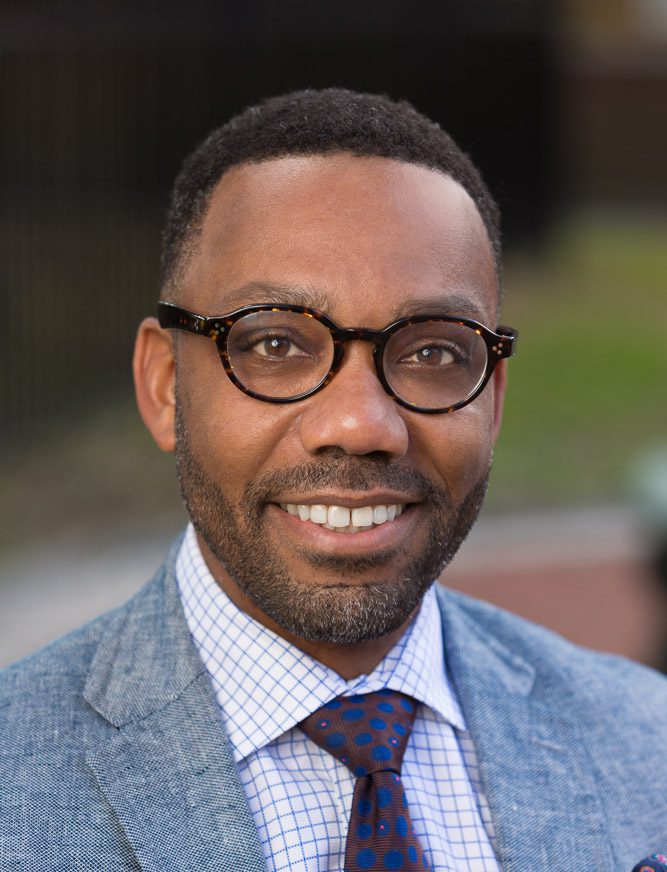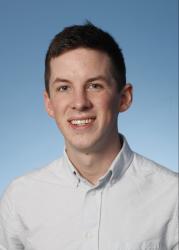This interview is adapted from a segment in the Brookings Cafeteria podcast called “Coffee Break,” where a scholar new to Brookings introduces their background, research interests, and offers book recommendations. The transcript has been slightly edited from the audio recording.
I’m Andre Perry, and I’m a new Rubenstein Fellow for the Brookings Institution in the Metropolitan Policy Program. I specifically work on inclusion, race, place, a little bit of education, and always prosperity.
Q: Where did you grow up?
A: I grew up in Wilkinsburg, Pennsylvania which is right on the inside of Pittsburgh, Pennsylvania. It’s a small town that’s under duress, and it’s under the national spotlight. And how the story goes (because you never really know because parents are often elusive about growing up), when I was born a woman who was not related to me took me from the hospital and raised me from there.
My mother … who was abused—she was unable to rear me—and so I was raised by this 63-year-old woman and her daughter. My older brother came along with me. Along the way my younger brother came along with me. My mother had four children before she was 21, and my father was murdered in jail. So I grew up in this small town and developed there.
Q: What inspired you to become a scholar?
A: Part of what inspired me to become a scholar is in how I was raised. When I went to school people would tell me that the person who reared me wasn’t my mother, [but] for all intents and purposes she was. She took care of me, I lived with her, she was a part of every major life experience, but she just wasn’t a blood relative.
But I’ve always questioned, what does it mean to be a parent? And later on in life when I started getting into the issue of immigrant educational rights—I used to run camps for the children of migrant workers—[I saw that] many children were faced with a similar question, or challenge, in that they weren’t considered citizens of the United States. And I was always befuddled by that because there were kids who lived like I did, did everything I did, and were not considered citizens.
So I then took up the issue of “should undocumented immigrants receive financial aid?” and that started me on this road to scholarship. But at the heart of it [were] my upbringing and those questions that inspire me, “what does it mean to be a parent?”
Q: What do you think is the most important issue we’re facing today?
A: The most important issue we’re facing today in my opinion is we’re struggling with determining who’s a member of society or not. And membership is important because it determines who we grant privileges and rights to.
Typically we recognize membership as citizenship, but we know throughout history [that] women and blacks did everything required of citizenship, and did everything required of membership, but did not receive full citizenship.
Currently we have 11 million undocumented immigrants in the United States, and many of which are doing everything required of membership, but are not yet full citizens. We have to find a way to normalize their status. But more importantly, there is a fight among citizens that some people deserve certain rights and some people do not.
Our identity is largely predicated on a conception—a white conception—of America. And we know from the data that there is a browning of America, and we’re struggling with that. So for me, there are serious membership questions that we’re struggling with, and we’ve got to find a way to have a different American dream because it’s rife with imagery that just does not reflect who we are as a country.
Q: What are you working on now?
A: I’m actually working on “chocolate cities.” I have the opportunity to focus on majority black cities and examine how they are doing relative to their peers and with other demographics. I get to see how folks of different ethnic and racial backgrounds are doing in majority black cities. And I’m really going to pay a lot of attention to mid-sized cities, smaller cities, places like Ferguson, Missouri that often are obscured by the happenings in the larger city. And of course I get to examine where I grew up, Wilkinsburg, which is on the outskirts of Pittsburgh.
And so I generally work with this assumption that black cities are treated like black people. And if we’re going to eliminate risk factors we’d better see racism as a risk factor as opposed to race as a risk factor. So that’s what I’ll be working on.
Q: If you could recommend any book to our listeners, what would it be?
A: Before I came to Brookings I started rereading “The Crisis of the Negro Intellectual” by Harold Cruse. It really put into perspective what my role is as a scholar, as an intellectual, how will I respond to the needs of the day. When the book was written in 1967, Cruse really questioned scholars taking on the affectations of the upright and respectable scholar because he felt that that wouldn’t uplift a struggling people. And I think that reigns true today, that how I behave won’t be because I fulfil societal norms and expectations, it will be because I ask the real questions that are impacting the lives of those who are struggling.
Related Content:
High paying jobs alone won’t save big cities
Whose citizenship does the Constitution protect?
New Orleans is still learning from the lessons of Katrina – Houston should too
On Trump’s decision to end DACA
The Brookings Institution is committed to quality, independence, and impact.
We are supported by a diverse array of funders. In line with our values and policies, each Brookings publication represents the sole views of its author(s).



Commentary
Meet Andre Perry, new Rubenstein Fellow in the Metropolitan Policy Program
October 11, 2017